There’s no actual reason to buy a Curtis, other than the fact that you want one. And that’s a perfectly good reason. The bikes are hand made in the UK, in a shed, by a two-man operation, they use materials and techniques that many other framebuilders, both small and commercial use, and the stock geometries are contemporary but not ground breaking. Good, simple, honest bikes in other words.
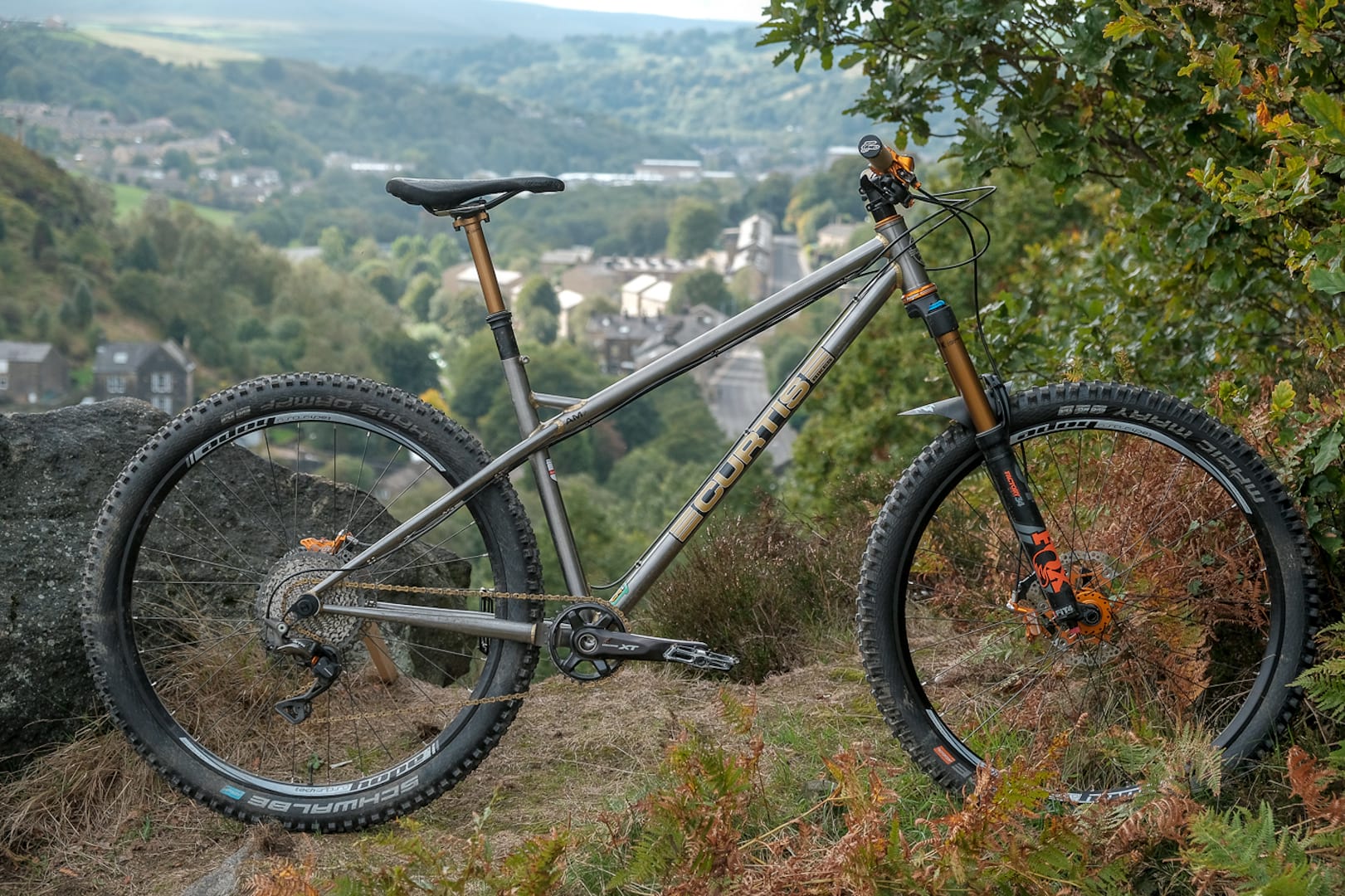
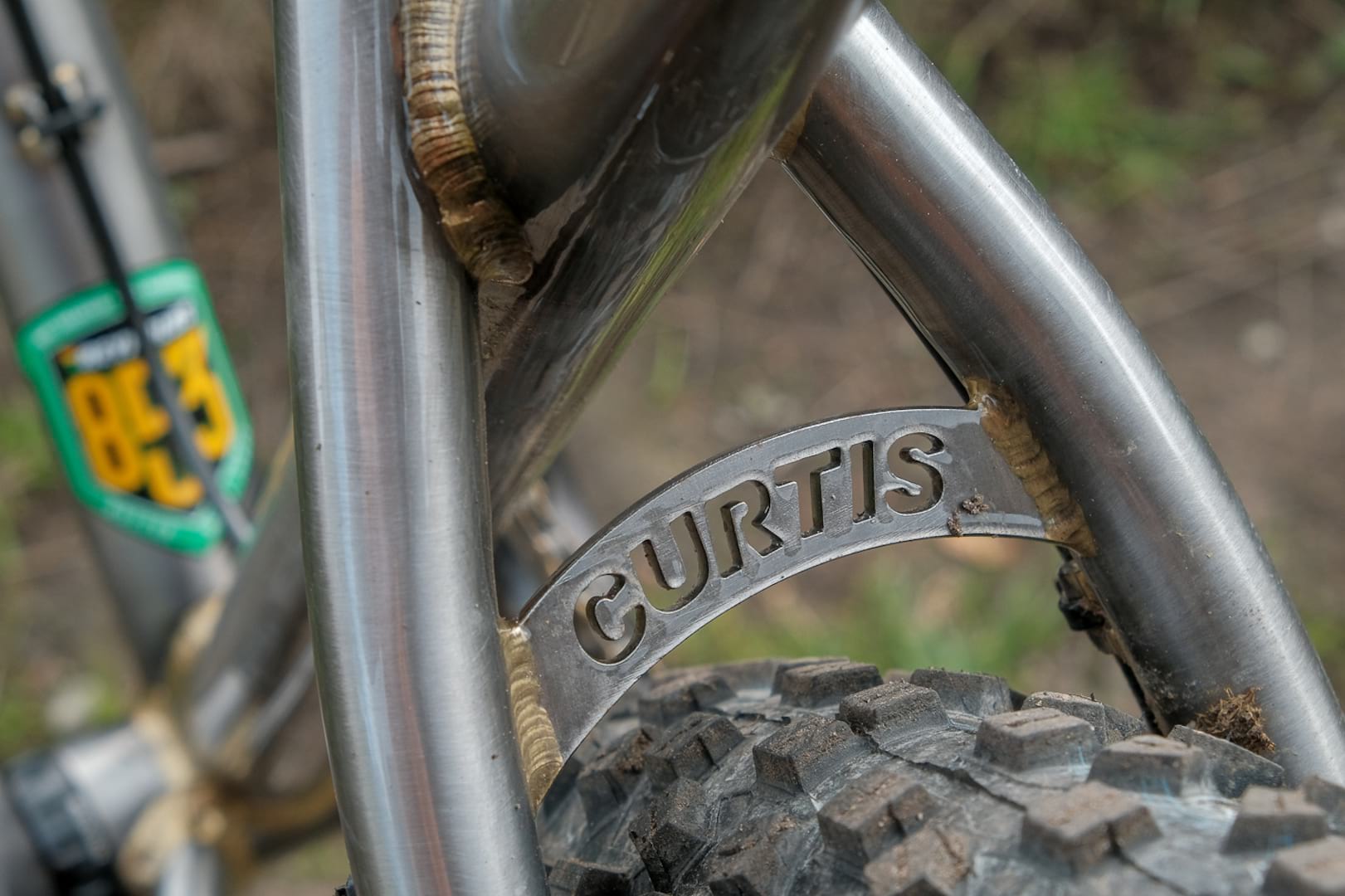
But it’s in the details that the Curtis AM7 shines. The bike we have is the first of Curtis Bikes’ production models and this hand-picked spec will set you back four grand. Look closer, though, and you’ll see that every single component has been hand picked for performance and, wherever possible, from a British company.
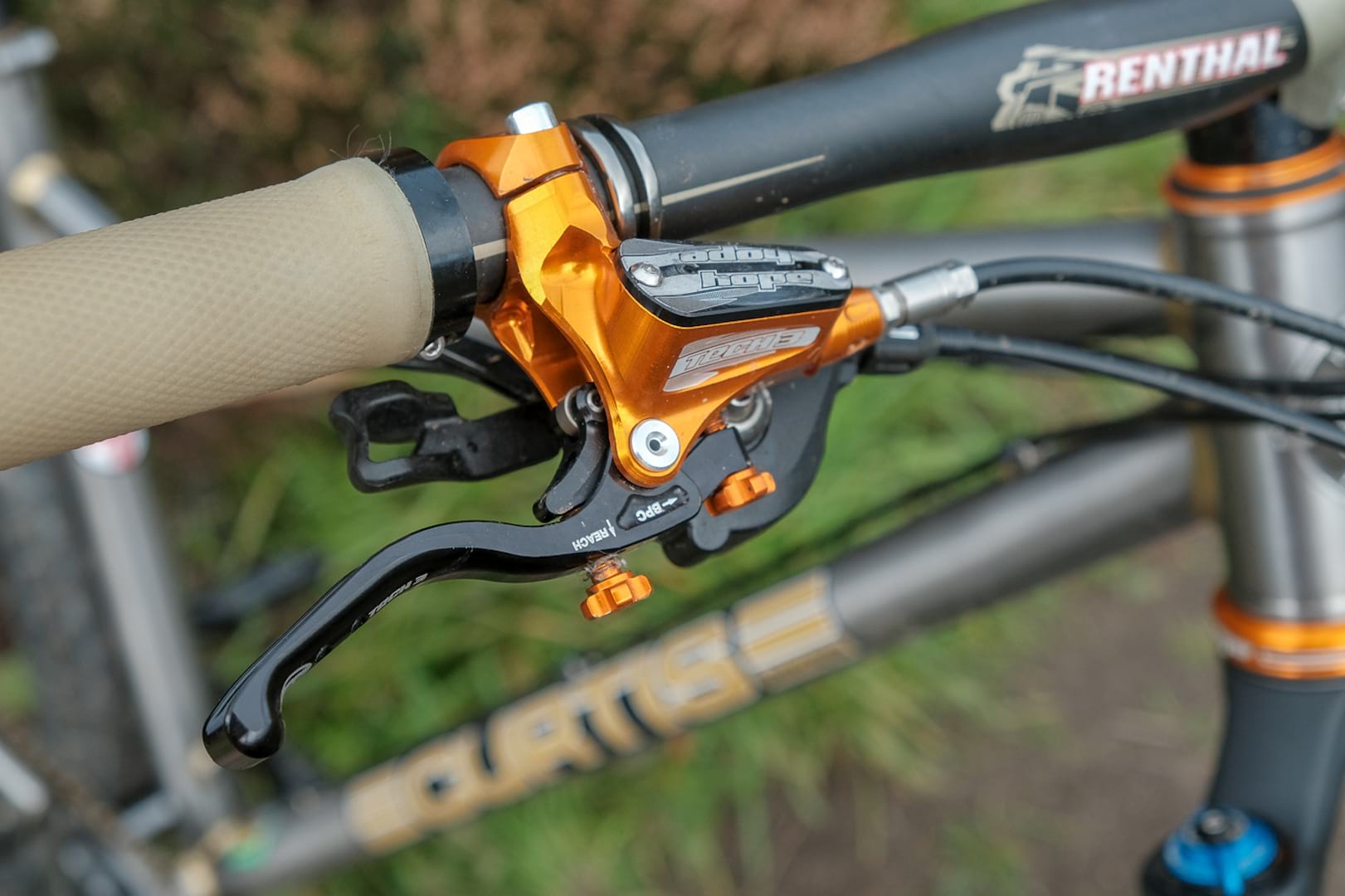
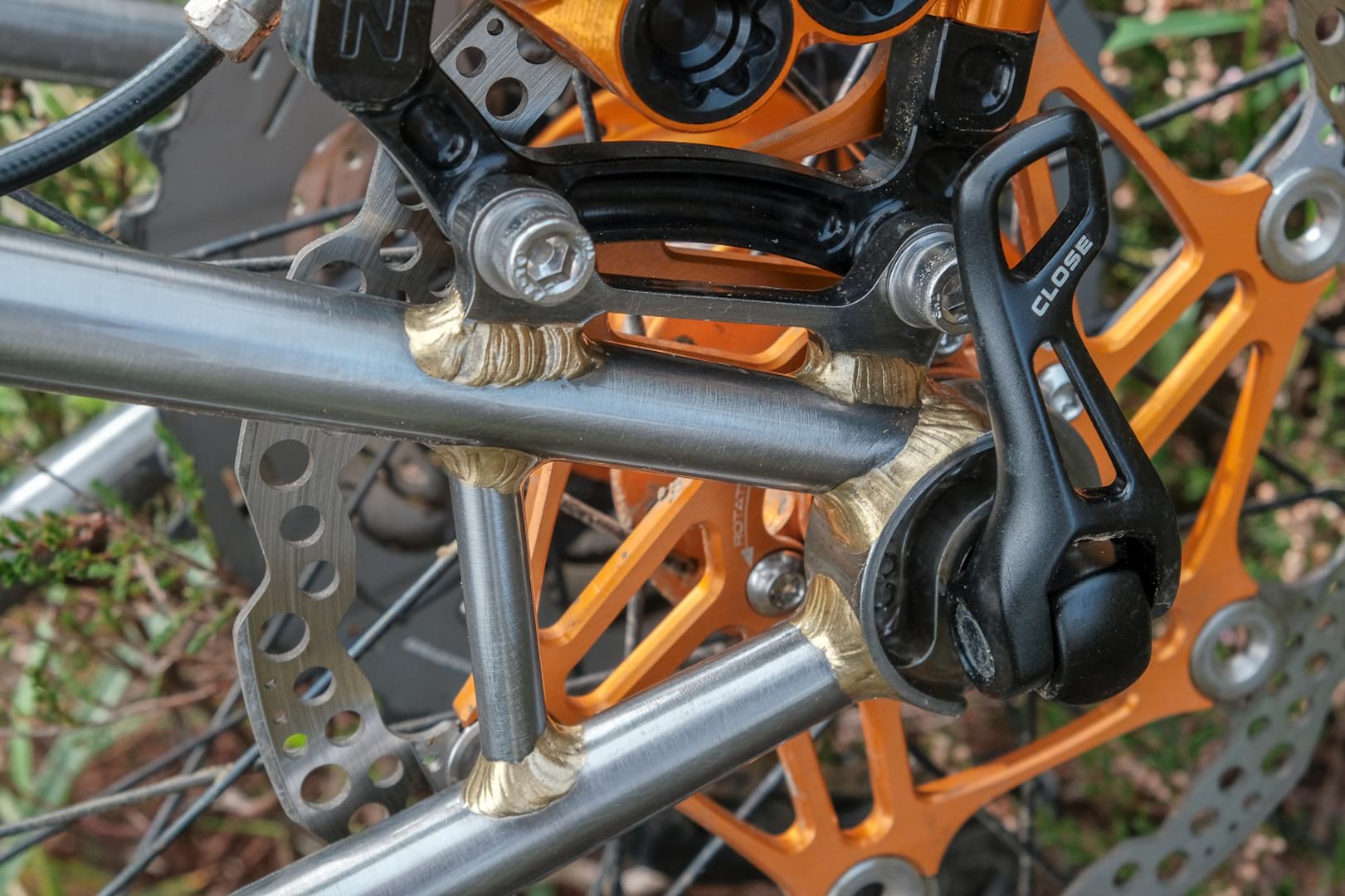
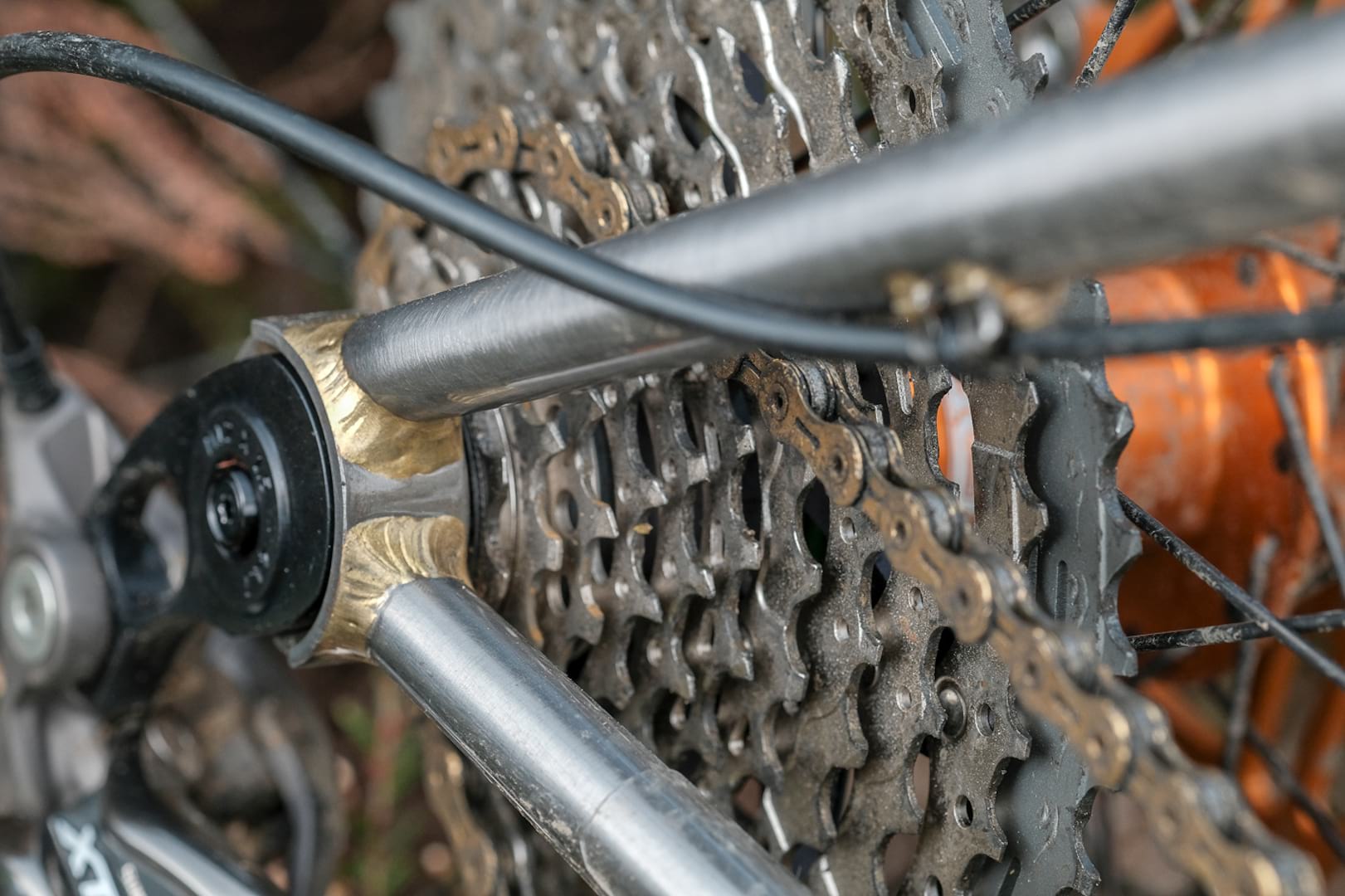
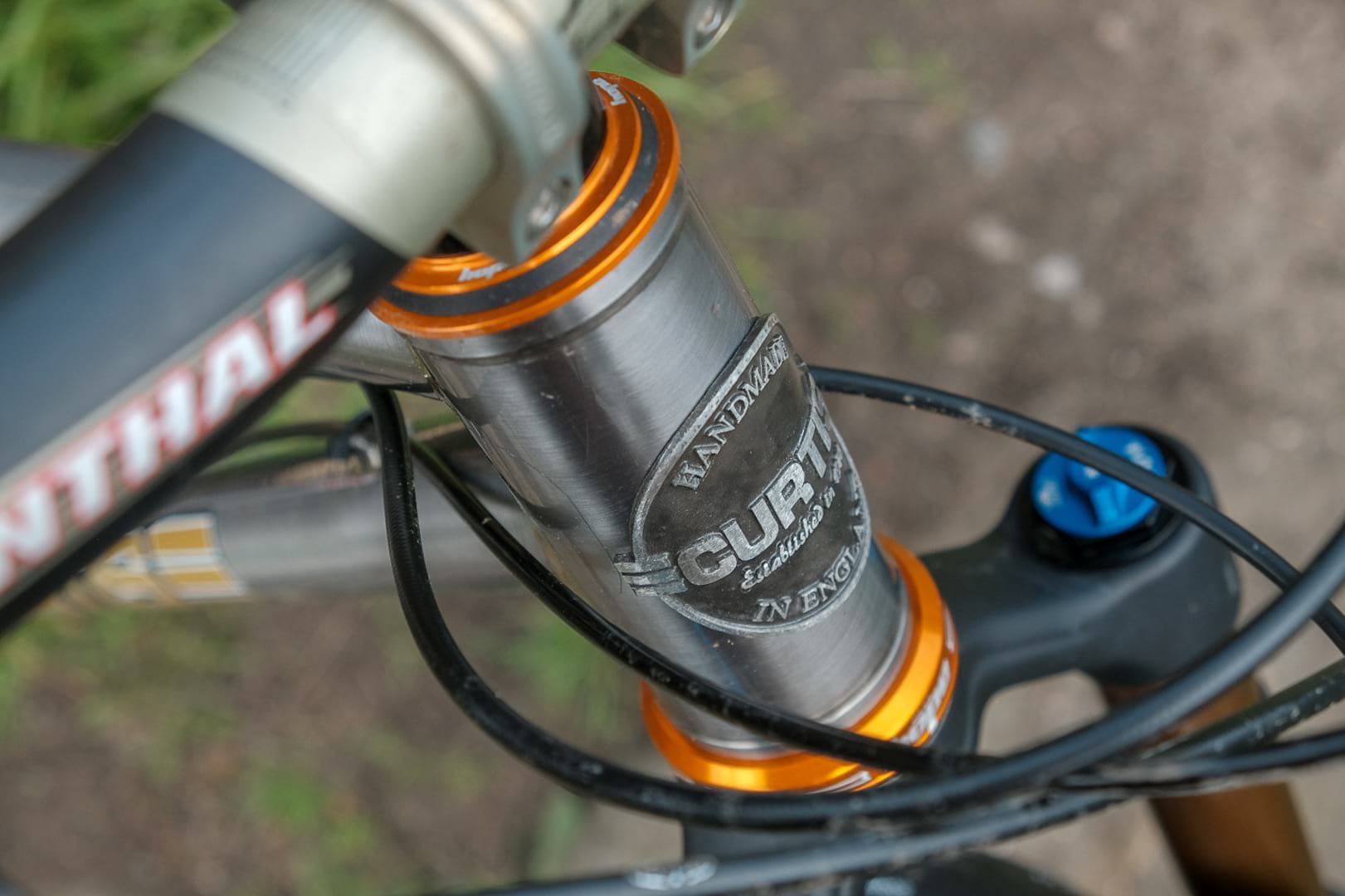
A slick Shimano 11 speed XT transmission takes care of the ‘go’ while neat, orange coloured Hope Tech brakes take care of the ‘slow’. Fox 34s up front with 150mm travel – all you’re ever going to need on a hardtail – and a matching Fox dropper post (with less travel… but enough, at 125mm).
And then we move on to the heart of the bike, the frame. It’s handmade in a shed. From steel. Yes, there are lighter, carbon frames out there, lighter aluminium frames out there too, but they’re unlikely to have been made in a small workshop by two people. If you want artisan, it’s still got to be steel these days for the most part.
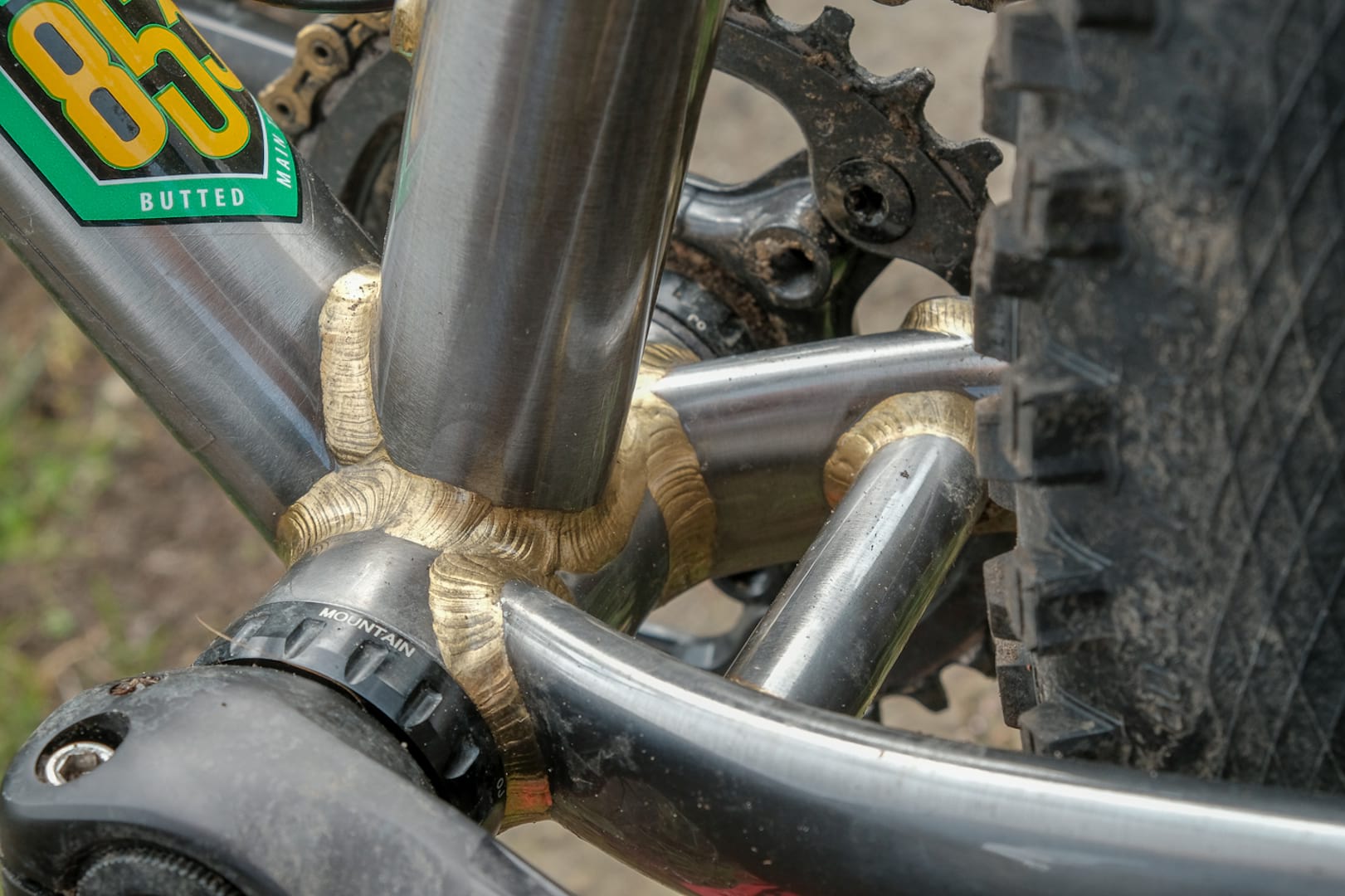
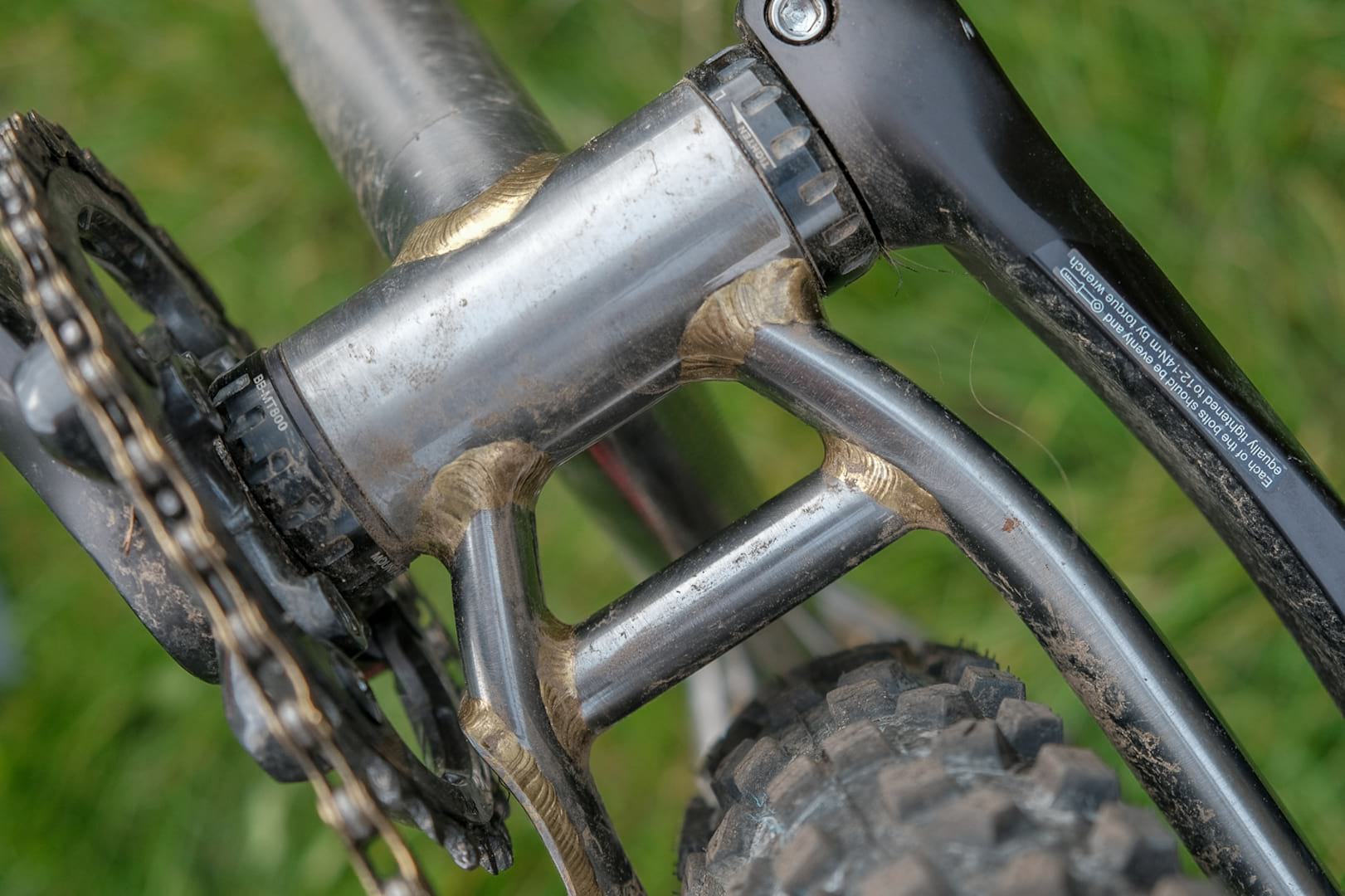
Gary mitres all of the frame tubes and tacks them into place and Brian Curtis brass-brazes each frame, just like he’s done to every Curtis frame since 1979 – and it shows in the joins, which under this clear powder coat look like a stack of new brass pennies. Even the most complex joins, like the bottom bracket to seatstay/seat tube joins, or the top tube to seatstay to seat tube, is executed with such precision that it’s easy to lose ten minutes per ride in idly staring at them.
Could you get smaller, lighter, neater welds on a TIG-welded frame? And the level of skill is similar in making flawless TIG welds too. But this is where we start getting into the heart of why this frame appeals to some people (and probably not to others…) – and it’s the same reasoning that makes people want mechanical watches and to drive a classic sports car. You don’t drive an old E-type or Triumph Stag because of how fast it goes. You drive it because of how it makes you feel. And the Curtis has feel. Buckets and buckets of feel.
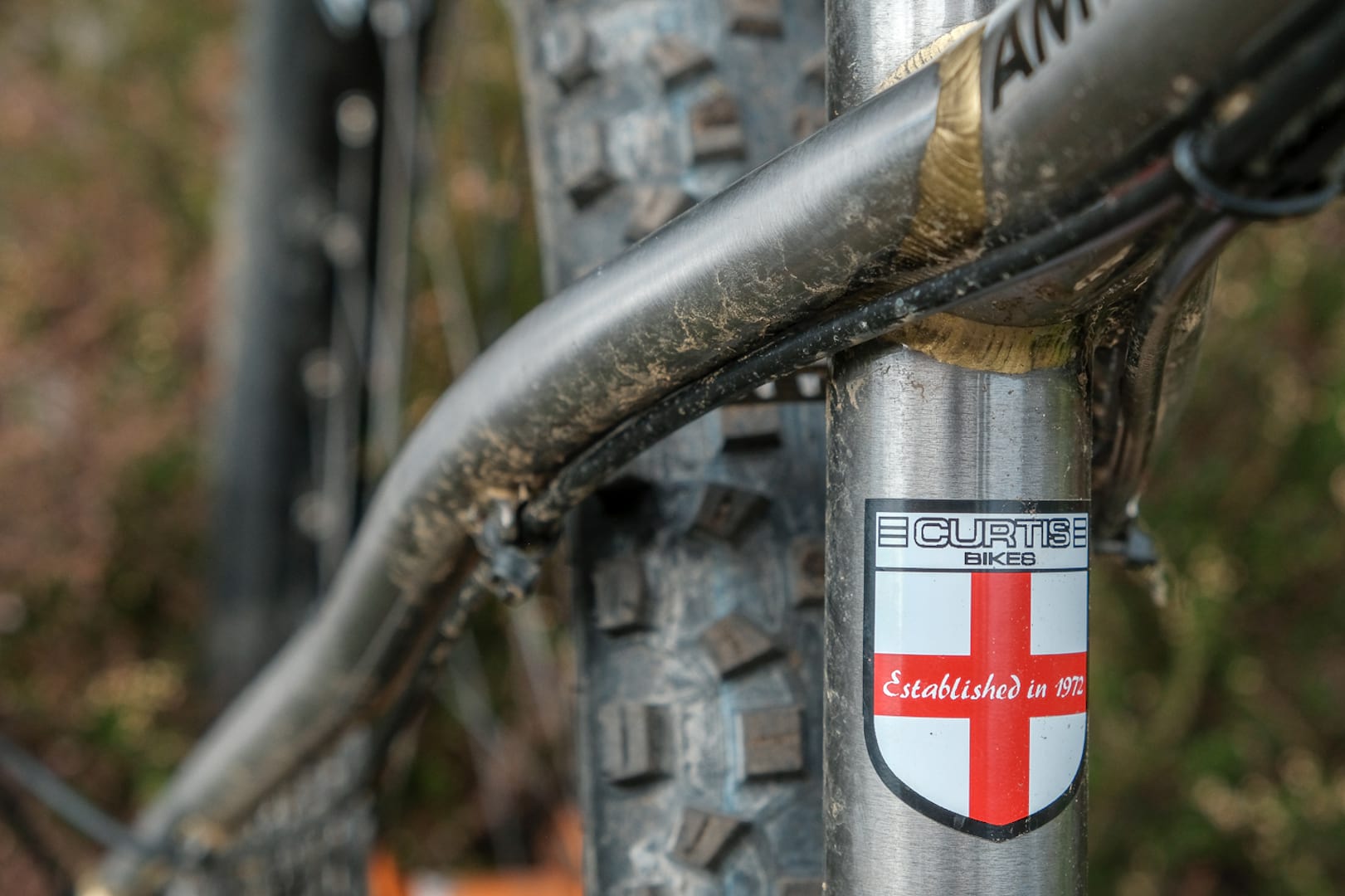
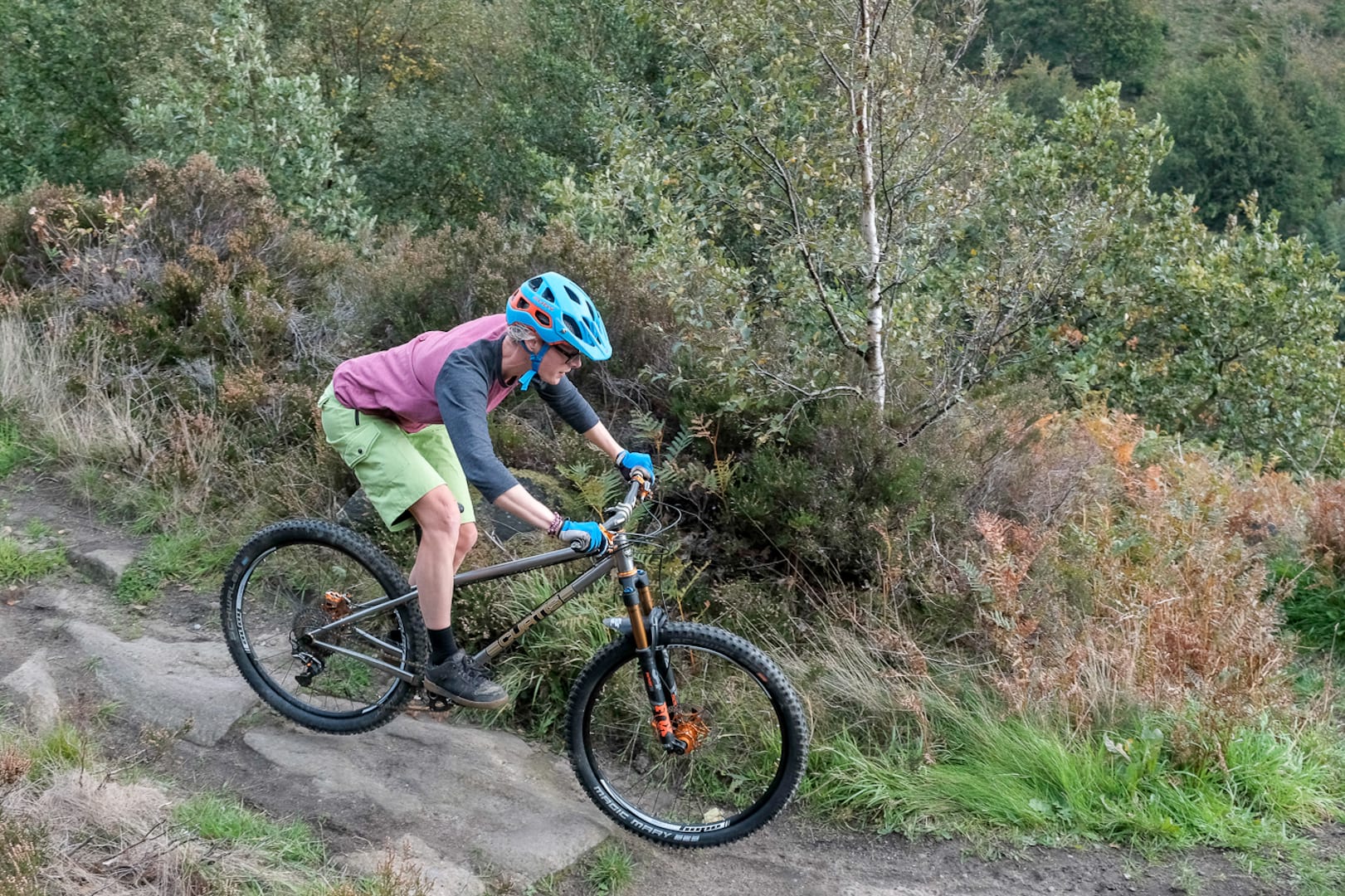
Turn up to a bike race, or (as I did) to a bike park on this bike and people are going to want a look at it. Do the same on a carbon Highball, or Trek Slash, and that’s unlikely to be the same. It’s a rarely sighted thing and you’re unlikely to find a similar one riding down another road on your estate. But it’s not about showing off, it’s whether this feel is justifiable on the trails.
Having a bike you’re in love with can really affect your riding. Apart from sneaking it in to the kitchen to stare at it, it will entice you out riding and it’ll goad you into riding more, and it’ll inspire you into riding better. I offer no science behind this, but for a certain kind of rider – one who invests a lot of passion into every purchase, a rider who can name every bike they’ve ever had, complete with photos, who is always searching for a bike with a certain ‘something’ – a bike like this AM7 will take them closer to their mountain biking nirvana.
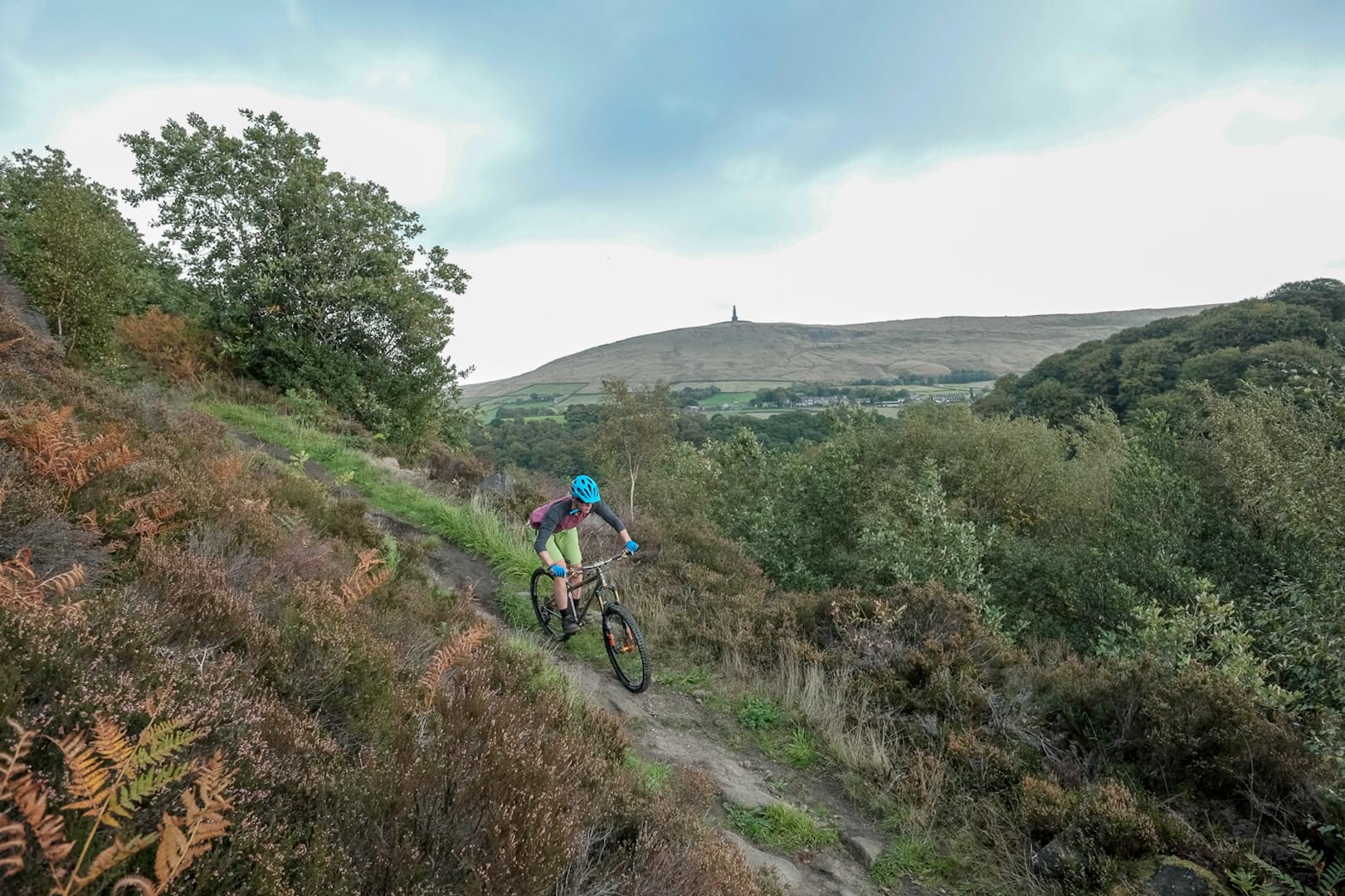
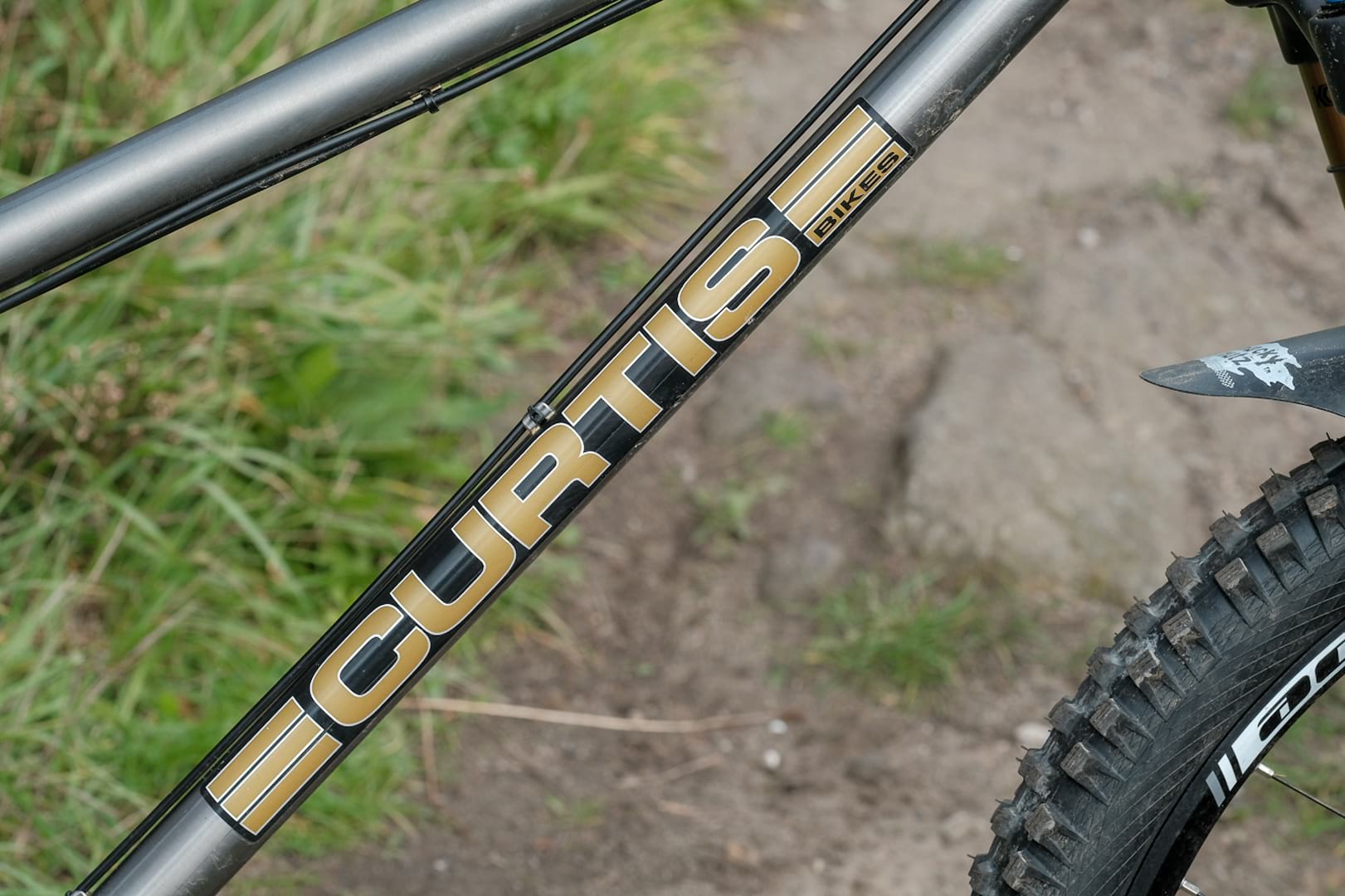
I’ll admit to being reasonably pro-steel and pro-handmade (on a small scale) bikes. I have several steel road, ‘cross and mountain bikes and I’ve even made one myself at Downland Cycles, so I appreciate the work and the skill involved. Regardless of that, I was impressed with the ride of the AM7. Given that this was an off-the-shelf medium sized bike and I had no say over geometry, fit or where I was riding, all I needed to do was hop on the bike, let some air out of the fork and tyres (Gary’s BMX and dirt jump roots showed in the initial setup) and just ride.
The AM7 encouraged me to attack swoopy trails as if I was on a short travel suspension bike – and I think that having a modern dropper post available under your left thumb has really helped bring hardtails on, as you can now just drop the post an inch or so on rolling trails and hey, you’ve got a rear suspension bike – suspended by your legs, but suspended nonetheless. Berms were attacked and flowy trails were flown. Even so, I was surprised to find that I’d bested my time on several descents on which I’d only previously ridden favoured suspension trail bikes. Placebo or not, the AM7 made me quicker.
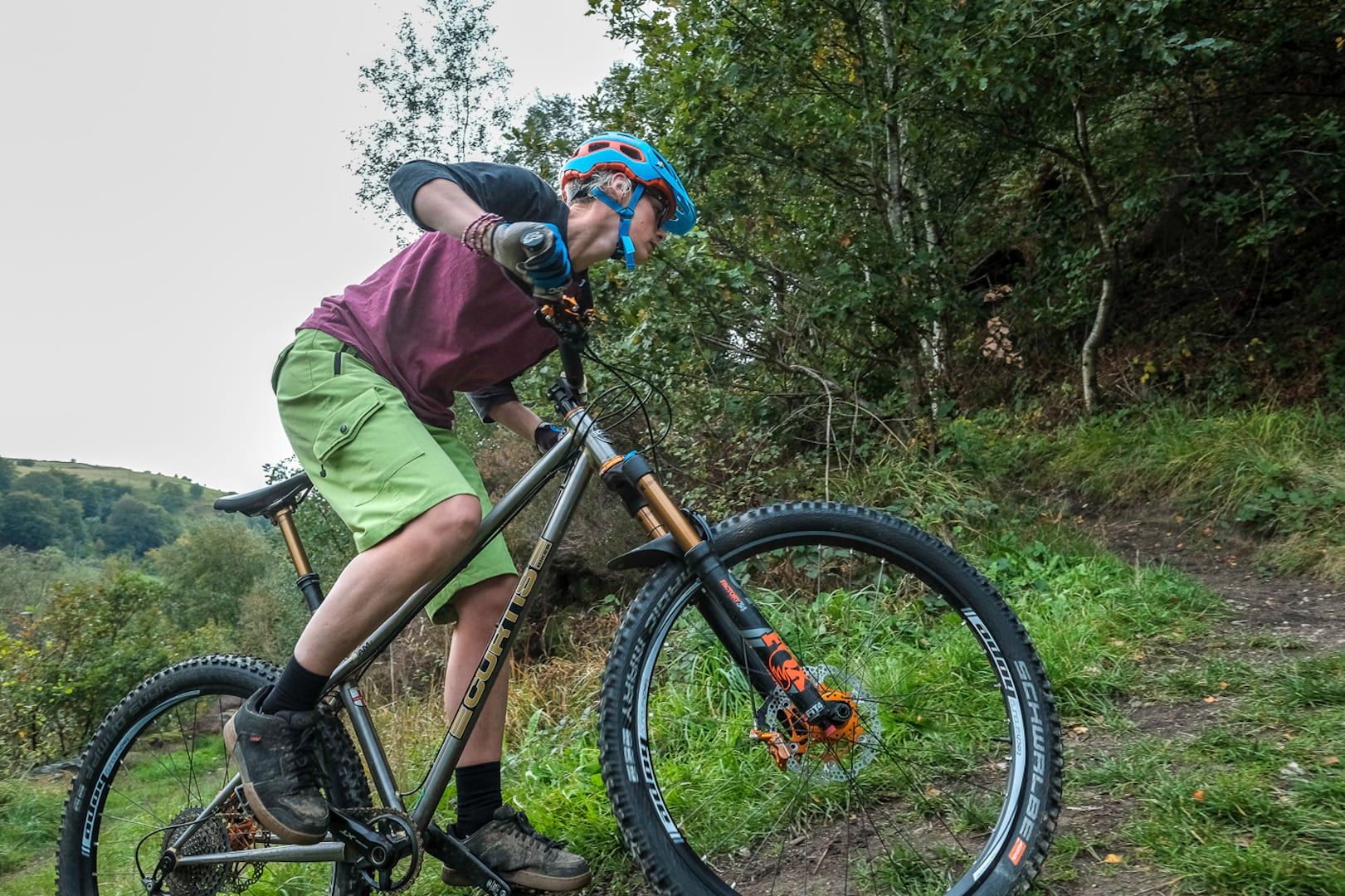
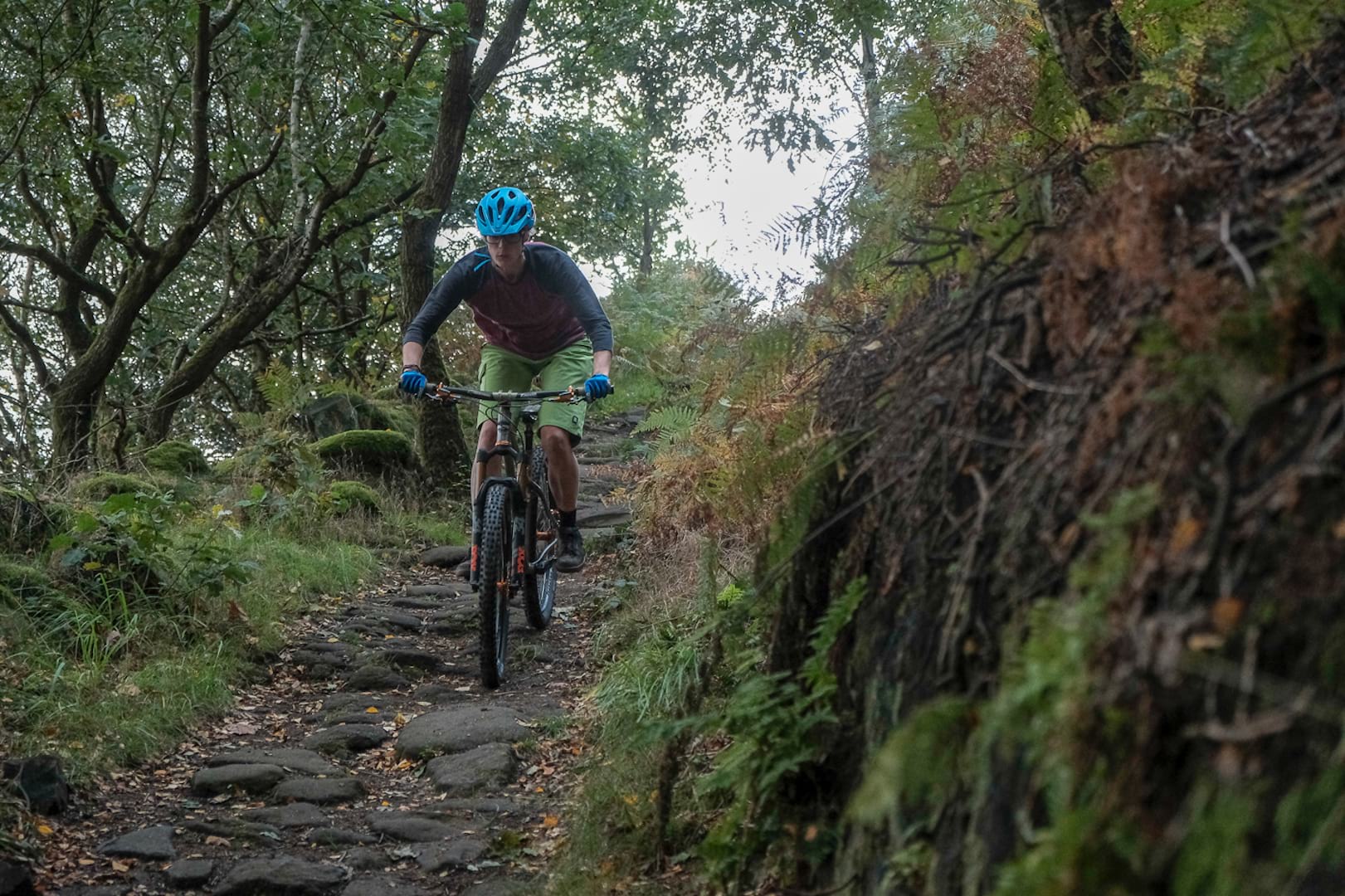
Climbs were a little more hit and miss, as the Curtis (as with all hardtails) requires some active riding; moving in and out of the saddle, on the gas, in order to be quick, and if you’re worn out from the previous descent, or the previous day’s riding then it can be hard to sustain this kind of effort for too long before you start succumbing to the temptation to sit when you should be standing and start sucking up the bumps yourself rather than letting the bike do it. That of course applies to all hardtails.
Overall
I don’t think I’ve ridden a hardtail that has got such admiring looks from the hardcore jump kids at Havok Bikepark, and also from my more cross country race companions. On paper it’s a pretty ordinary steel hardtail, but it appears to be capable of bringing out the best in riders. It used to be that our qualifying trigger for ‘Bike Porn’ was whether a bike would draw a crowd outside an event food tent. These days, a carbon full suspension bike won’t do that, but this bike certainly would.
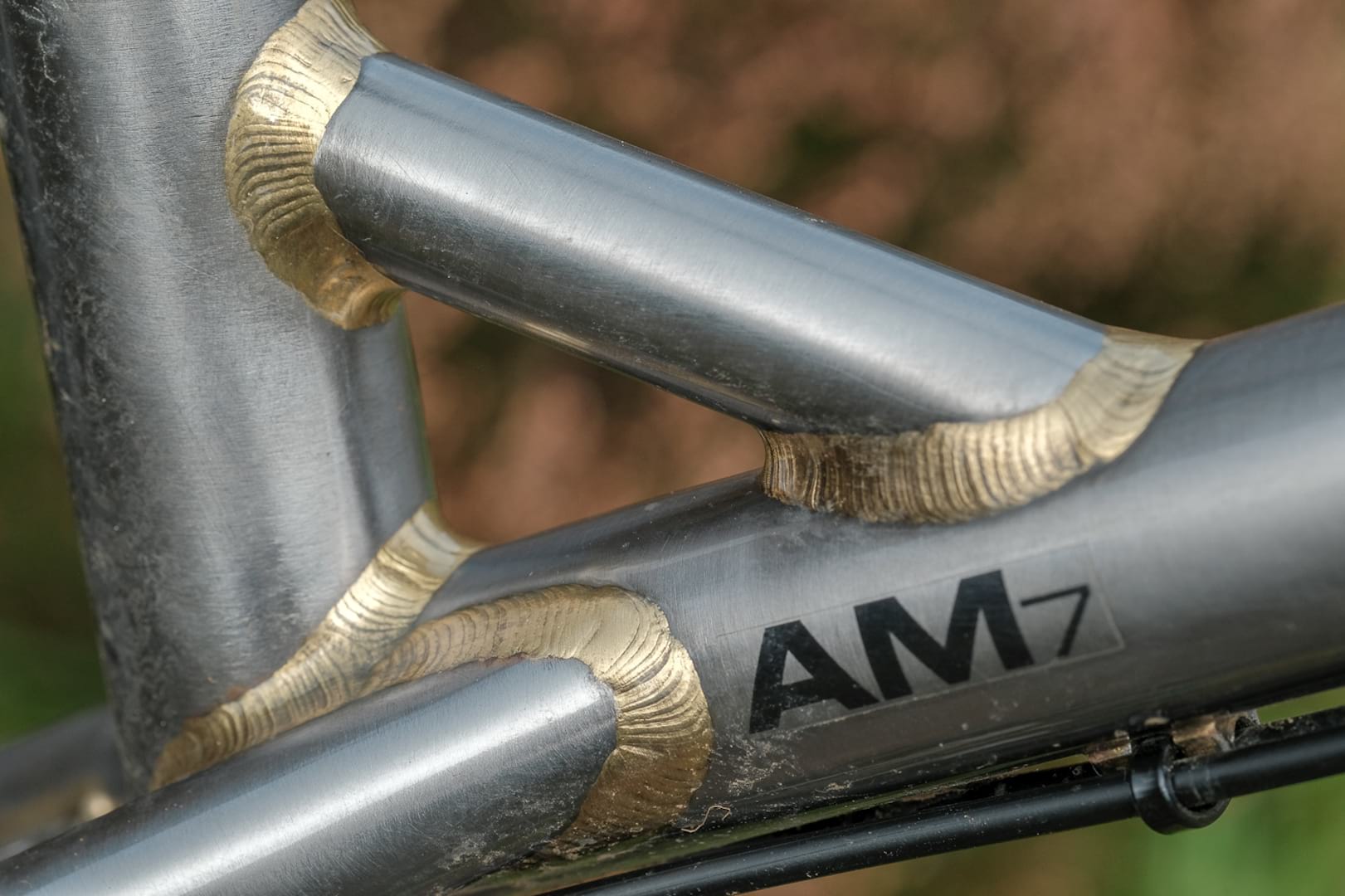







Lush.
I think that’s the most loveliest thing ever!
More interested in the track locations – think I’ve figured out which line on the map that ‘Nirvana?’ pic is based on the position of the monument – shall go and see if I’m right next week…
Oh my…. I think I have had an accident in the trouser region
It would have to be the clear coat finish for me. There is nothing better to my eyes than a steel frame with brass fillet joints. Love it.